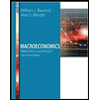5) This question considers how the FX market will respond to changes in monetary policy in South Korea. For these questions, define the exchange rate as South Korean won per Japanese yen, Ewon/ Use the FX and money market diagrams to answer the following questions. On all graphs, label the initial equilibrium point A. a. Suppose the Bank of Korea permanently increases its money supply. Illustrate the short- run (label equilibrium point B) and long-run effects (label equilibrium point C) of this policy. b. Now, suppose the Bank of Korea announces it plans to permanently increase its money supply but doesn't actually implement this policy. How will this affect the FX market in the short run if investors believe the Bank of Korea's announcement? c. Finally, suppose the Bank of Korea permanently increases its money supply, but this change is not anticipated. When the Bank of Korea implements this policy, how will this affect the FX market in the short run? d. Using your previous answers, evaluate the following statements: • If a country wants to decrease the value of its currency, it can do so (temporarily) without raising domestic interest rates. The central bank can increase both the domestic price level and the value of its currency in the long run. The most effective way to decrease the value of a currency is through surprising investors.
5) This question considers how the FX market will respond to changes in monetary policy in South Korea. For these questions, define the exchange rate as South Korean won per Japanese yen, Ewon/ Use the FX and money market diagrams to answer the following questions. On all graphs, label the initial equilibrium point A. a. Suppose the Bank of Korea permanently increases its money supply. Illustrate the short- run (label equilibrium point B) and long-run effects (label equilibrium point C) of this policy. b. Now, suppose the Bank of Korea announces it plans to permanently increase its money supply but doesn't actually implement this policy. How will this affect the FX market in the short run if investors believe the Bank of Korea's announcement? c. Finally, suppose the Bank of Korea permanently increases its money supply, but this change is not anticipated. When the Bank of Korea implements this policy, how will this affect the FX market in the short run? d. Using your previous answers, evaluate the following statements: • If a country wants to decrease the value of its currency, it can do so (temporarily) without raising domestic interest rates. The central bank can increase both the domestic price level and the value of its currency in the long run. The most effective way to decrease the value of a currency is through surprising investors.
Principles of Economics 2e
2nd Edition
ISBN:9781947172364
Author:Steven A. Greenlaw; David Shapiro
Publisher:Steven A. Greenlaw; David Shapiro
Chapter29: Exchange Rates And International Capital Flows
Section: Chapter Questions
Problem 7SCQ: How would a contractionary monetary policy affect the exchange rate, net exports, aggregate demand,...
Related questions
Question
please help me with 5. Thank you

Transcribed Image Text:5) This question considers how the FX market will respond to changes in monetary policy in
South Korea. For these questions, define the exchange rate as South Korean won per Japanese
yen, Ewon/ Use the FX and money market diagrams to answer the following questions. On all
graphs, label the initial equilibrium point A.
a. Suppose the Bank of Korea permanently increases its money supply. Illustrate the short-
run (label equilibrium point B) and long-run effects (label equilibrium point C) of this
policy.
b. Now, suppose the Bank of Korea announces it plans to permanently increase its money
supply but doesn't actually implement this policy. How will this affect the FX market in
the short run if investors believe the Bank of Korea's announcement?
c. Finally, suppose the Bank of Korea permanently increases its money supply, but this
change is not anticipated. When the Bank of Korea implements this policy, how will this
affect the FX market in the short run?
d. Using your previous answers, evaluate the following statements:
• If a country wants to decrease the value of its currency, it can do so (temporarily)
without raising domestic interest rates.
The central bank can increase both the domestic price level and the value of its
currency in the long run.
The most effective way to decrease the value of a currency is through surprising
investors.
Expert Solution
This question has been solved!
Explore an expertly crafted, step-by-step solution for a thorough understanding of key concepts.
Step by step
Solved in 2 steps with 1 images

Recommended textbooks for you

Principles of Economics 2e
Economics
ISBN:
9781947172364
Author:
Steven A. Greenlaw; David Shapiro
Publisher:
OpenStax

Macroeconomics: Principles and Policy (MindTap Co…
Economics
ISBN:
9781305280601
Author:
William J. Baumol, Alan S. Blinder
Publisher:
Cengage Learning

Managerial Economics: Applications, Strategies an…
Economics
ISBN:
9781305506381
Author:
James R. McGuigan, R. Charles Moyer, Frederick H.deB. Harris
Publisher:
Cengage Learning

Principles of Economics 2e
Economics
ISBN:
9781947172364
Author:
Steven A. Greenlaw; David Shapiro
Publisher:
OpenStax

Macroeconomics: Principles and Policy (MindTap Co…
Economics
ISBN:
9781305280601
Author:
William J. Baumol, Alan S. Blinder
Publisher:
Cengage Learning

Managerial Economics: Applications, Strategies an…
Economics
ISBN:
9781305506381
Author:
James R. McGuigan, R. Charles Moyer, Frederick H.deB. Harris
Publisher:
Cengage Learning

Brief Principles of Macroeconomics (MindTap Cours…
Economics
ISBN:
9781337091985
Author:
N. Gregory Mankiw
Publisher:
Cengage Learning

Exploring Economics
Economics
ISBN:
9781544336329
Author:
Robert L. Sexton
Publisher:
SAGE Publications, Inc
